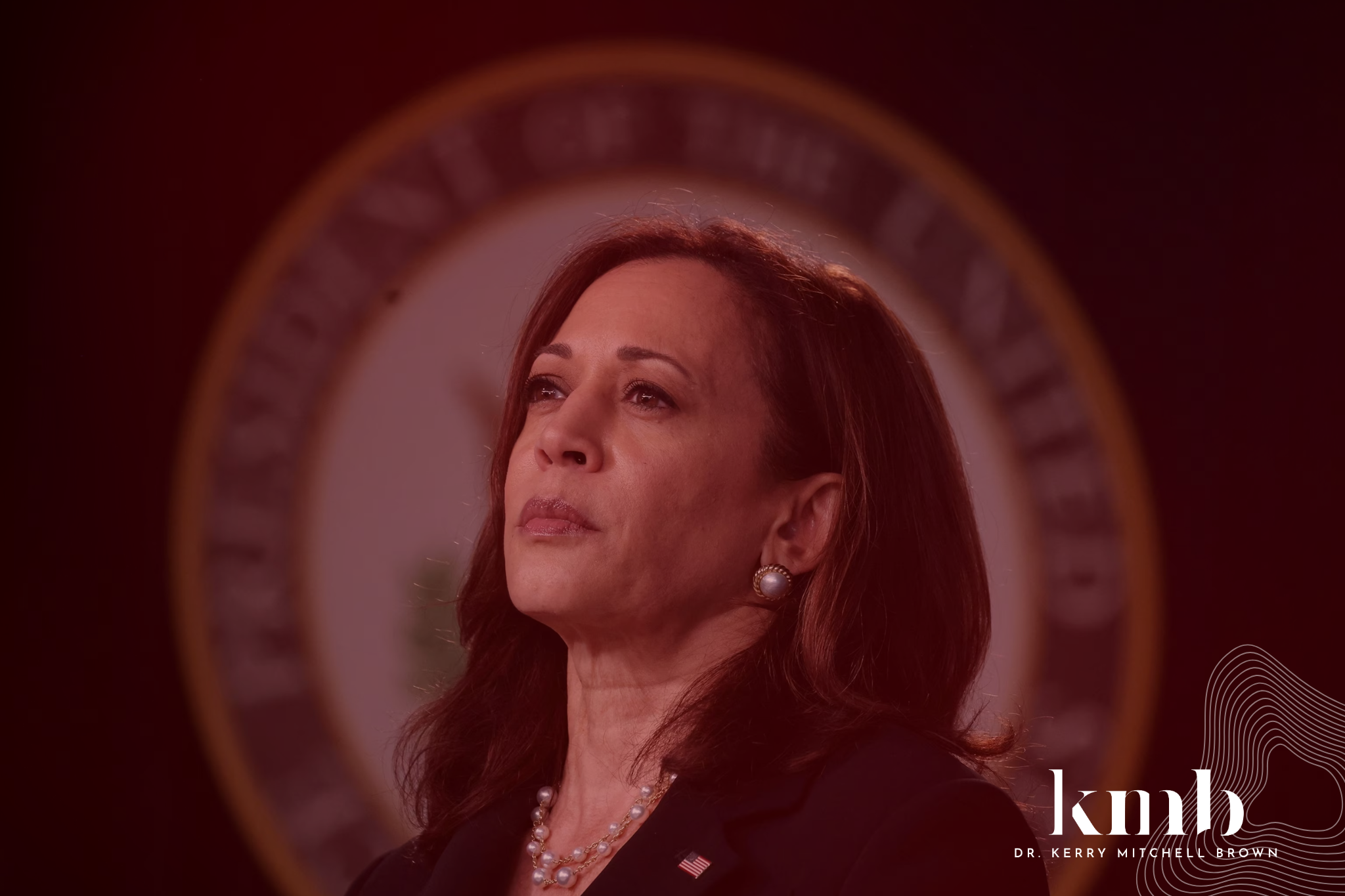The recent loss of Kamala Harris to Donald Trump in the race for the 47th presidency transcends mere political significance. It strikes a profound chord with Black women nationwide, resonating like a tolling bell that evokes reminders of historical injustices and the systemic barriers that continue to overshadow our progress. This election encapsulated a painful mix of heartbreak, disappointment, and disbelief, highlighting the persistent hurdles we face.
For many, Kamala Harris’s candidacy symbolized not just a political ambition but a beacon of hope for a more inclusive and compassionate future. As the first Black woman and the first person of South Asian descent to run for president on a major party ticket, her presence in the race was a powerful statement about progress and representation. However, her defeat starkly reveals the unrelenting grip of racism, sexism, and misogynoir that still permeate our society. This serves as a narrative we know all too well—one that tells Black women that we shouldn’t take it personally, even when the world insists otherwise. Yet, it also highlights the incredible resilience of Black women, who continue to fight for their voices to be heard and their contributions to be recognized, even in the face of systemic barriers and societal prejudice.
From the outset, a double standard was glaringly evident in the treatment of Kamala Harris during her candidacy. The discourse surrounding her was marred by a pervasive atmosphere of disrespect, echoing the significant challenges faced by Hillary Clinton during the 2016 election. Instead of being addressed with the dignity and respect routinely afforded to her male counterparts, Harris was often referred to by her first name or, at times, even misnamed—an unsettling and subtle yet revealing indication of the biases and societal norms at play. This disservice undermines her stature and detracts from recognizing her skills and capabilities in the public eye. Such treatment reflects broader issues within political discourse, where women, especially Black women, frequently encounter hurdles that their male peers do not. This underscores the urgent need for systemic change in political conversations and representation, where all individuals, regardless of their race or gender, are treated with the respect and dignity they deserve.
This election has once again unveiled a reality that many prefer to overlook—one in which Donald Trump, despite his evident track record, was favored over a qualified candidate like Kamala Harris. Even more troubling, did people simply not care? The comments expressing ignorance about her qualifications were truly astonishing. This situation prompts critical questions: Does this outcome signify a failure to engage with accurate information, or does it highlight the pervasive misinformation that clouds our electoral landscape?
The parallels between Harris’s experience and those of other women, particularly Black women aspiring to leadership roles, are glaring and undeniable. These enduring patterns highlight a broader issue within America, revealing systemic barriers that extend beyond individual candidates and their personal struggles. They underscore the challenges faced by Black women in navigating political landscapes that have historically been dominated by white men. However, they also underscore the urgent need for systemic change to support diverse leadership in all sectors, offering hope and inspiration for a more equitable future.
Harris’s unsurmountable obstacles throughout this campaign mirror those faced by other prominent Black leaders, such as Barack Obama. However, the scrutiny she faced was exacerbated by the unique intersections of gender and race, adding complexity to her experience. This election should serve as a critical wake-up call for society, much like the suffragette movement of the early 20th century—a powerful reminder that the fight for gender equality is ongoing and deeply embedded in American history. It underscores the need for continuing dialogue and action to address these issues, highlighting the contributions and struggles of women of color who have paved the way for future generations. The challenges they encounter today reflect a broader societal need to confront and dismantle systemic inequalities that persist in various forms.
While it might be easy to dismiss this as just another political loss, it is imperative to view it as a crucial moment for Black women to regroup, refocus, and recharge. This is not merely a setback but a powerful rallying cry to invest in ourselves, become entrepreneurs, launch our own businesses, and uplift fellow Black women in their pursuits. We build a stronger community by creating supportive networks, sharing resources, and mentoring and sponsoring one another. We must transform this disappointment into a renewed commitment to engage deeply in political science, advocate for social justice, and participate in transformative initiatives to create lasting change. In doing so, we empower ourselves, unlock our superpowers, and inspire future generations of Black women and girls to persevere and thrive in an often challenging landscape.
Confronted with systemic barriers and societal biases, we must continue to push forward for ourselves and future generations who will follow in our footsteps. The setbacks we face today are not merely obstacles; they are reflections of deeply rooted inequities that have persisted for far too long. The path to true equity is long and fraught with challenges, yet it is a journey worth undertaking for justice and fairness. Each step paves the way for a better future and honors the struggles of those who came before us.
We are a community that thrives despite disappointments and, I may even say, heartbreak; we create supportive environments where everyone’s contributions are valued. This support has been vital, allowing us to share our experiences, learn from one another, and grow collectively. Together, we can create spaces for our voices to be heard, ensuring that we advocate for one another in the face of adversity and work collaboratively towards a more equitable society.
Kamala Harris’s candidacy may have ended in disappointment for many, but it also serves as a powerful reminder of Black women’s remarkable strength, resilience, and brilliance throughout history. Despite the challenges and setbacks faced, the journey of Black women in politics and leadership demonstrates an unyielding spirit that continues to inspire future generations. We owe it to ourselves and those trailblazers who paved the way before us to carry this fight forward, claim our rightful place in society, and demand the respect and recognition we deserve. Even when external validation seems elusive, we must remember that our worth is inherent and undeniable. The time for change is now, and it starts with us taking action, inspiring one another, and advocating for a future where our voices are heard and valued. Let us embrace this moment and strive for a transformation that uplifts all of us.

